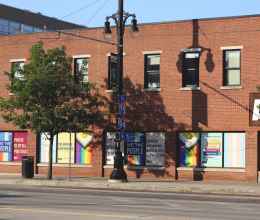The Transgender Advocacy Project was conceived from a very simple premise: Transgender people’s voices are critical to moving the entire equality movement forward in a post-marriage equality America. And it’s working.
Next month, some 25 transgender Michiganders and allies will complete the first Advocacy University program. They have engaged in a six-month, intensive education program designed to impart sophisticated advocacy skills and a real-world perspective on the challenges of moving pro-active transgender inclusive policy forward.
This diverse group of Advocacy U Fellows did more than make just a half-year commitment to the TAP program. As a condition of their acceptance into Advocacy U, they pledged to take the skills they were learning and hone them in the real world by developing near-term and long-range projects that engage coalitions for change – a long-term prospect.
There was an implicit admission that went along with the creation of the Transgender Advocacy Project: Institutional and established organizational players, both statewide and nationally had not yet done the inclusion work necessary to empower the transgender community to speak on their own behalf. So, it was a most welcome, while not wholly unexpected, surprise when TAP participants grasped for themselves the significance of what was possible here in Michigan and set out immediately to build a movement. While leadership development had been an underlying goal of TAP, what could not have been anticipated was the extent of the coalescence which began to transpire within Michigan’s transgender community.
Advocacy U rolled out in September 2015, and by mid-November participants had convened a statewide gathering of the transgender community to discuss and weigh in collectively on the important issue of whether LGBT rights should be placed on the ballot in the 2016 general election.
Members of the transgender community published a well-reasoned and firm admonition that putting our rights to popular vote in 2016 was not in our--or anyone else’s--best interest. It marked an amazing display of cohesion developing in a community that is frequently the target of hateful rhetoric and violence and accustomed to being told to keep a low profile and stay quiet.
Now, here were transgender people speaking publicly, with one loud voice on an issue that affected them directly and in no small way. Along the way, Michigan’s transgender community changed the vector of the entire discussion.
Just days ago, in fact, Fair Michigan dropped its efforts for a ballot initiative. Much of the credit for putting the brakes on this misguided effort goes directly to the voice of reason coming from a unified trans community. And for that, we should all be grateful.
By design, the Transgender Advocacy Project has largely flown under the public radar, but is getting noticed in the broader advocacy community. TAP will provide the basis for a scalable model which can be utilized in other states and with other organizations as well as continuing the work here in Michigan.
This week, both the TAP and Advocacy University models will be part of a presentation and panel discussion about moving LGBT rights forward at the ACLU National Staff Conference in Orlando, Fla. Our work here has led to TAP (and me) being invited to participate at a national policy table of LGBT organizations. I’ve also been charged with hosting monthly calls with transgender professionals from across the country to bring our voices together within our movement, to ensure we are being consulted as policy and tactics are developed nationally.
Even as the work being done by Michigan’s transgender community and TAP goes on, it is increasingly clear that our initial premise is playing out across the advocacy world too.
The voice of the voiceless is the one we most need to hear.
